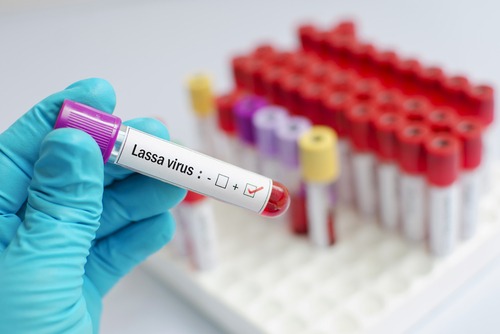
A Phase 1B clinical trial of Lassa fever vaccine INO-4500, developed by INOVIO, began dosing its first patient this week in Ghana.
The vaccine is a first on several fronts: the first candidate for Lassa fever to begin human trials and the first to have trials conducted in West Africa, where the infection is endemic. This trial of the DNA vaccine was fully funded by the Coalition for Epidemic Preparedness (CEPI). In conjunction with INOVIO, this trial intends to make the vaccine available as soon as possible to stockpiles for emergency use following phase two testing.
“We have observed that INO-4500 vaccination generates robust antibody and T cell immune responses in a Phase 1 clinical trial conducted in the U.S., and this continued advancement of INO-4500 into Phase 1B trial is another important step in a fight against Lassa fever,” Dr. J. Joseph Kim, president and CEO of INOVIO, said. “This trial also represents a significant advancement within INOVIO’s infectious disease portfolio and further validates the company’s DNA medicines platform and proprietary CELLECTRA® delivery device.”
Approximately 220 adult participants between 18 and 50 years old will be enrolled in the trial. The trial will be focused on safety and immunogenicity in an African population, following two doses at 0 and 28 days, respectively. Researchers will also use the Phase 1B trial to determine dosages for subsequent phase two studies.
Lassa fever is an animal-borne, acute hemorrhagic viral disease typically seen in West Africa. It is most commonly spread by rodents but can also be passed through contact with infected bodily fluids. It can result in fever, vomiting, swelling, pain, bleeding, and death. In fact, it’s estimated that Lassa fever kills approximately 5,000 people annually.
“With the emerging infectious disease remaining a serious public health threat across West Africa, including Ghana, it is crucial that populations can participate in vaccine trials to ensure sufficient data is generated so that they can be confidently rolled out in outbreak-prone areas in the future, dependent on safety and immunogenicity testing,” Dr. Melanie Saville, director of vaccine R&D at CEPI, said. “Together, this work plays into broader research efforts led by CEPI to minimize the threat of the disease, including the launch of the largest-ever Lassa fever epidemiology research program launched in West Africa late last year.”




